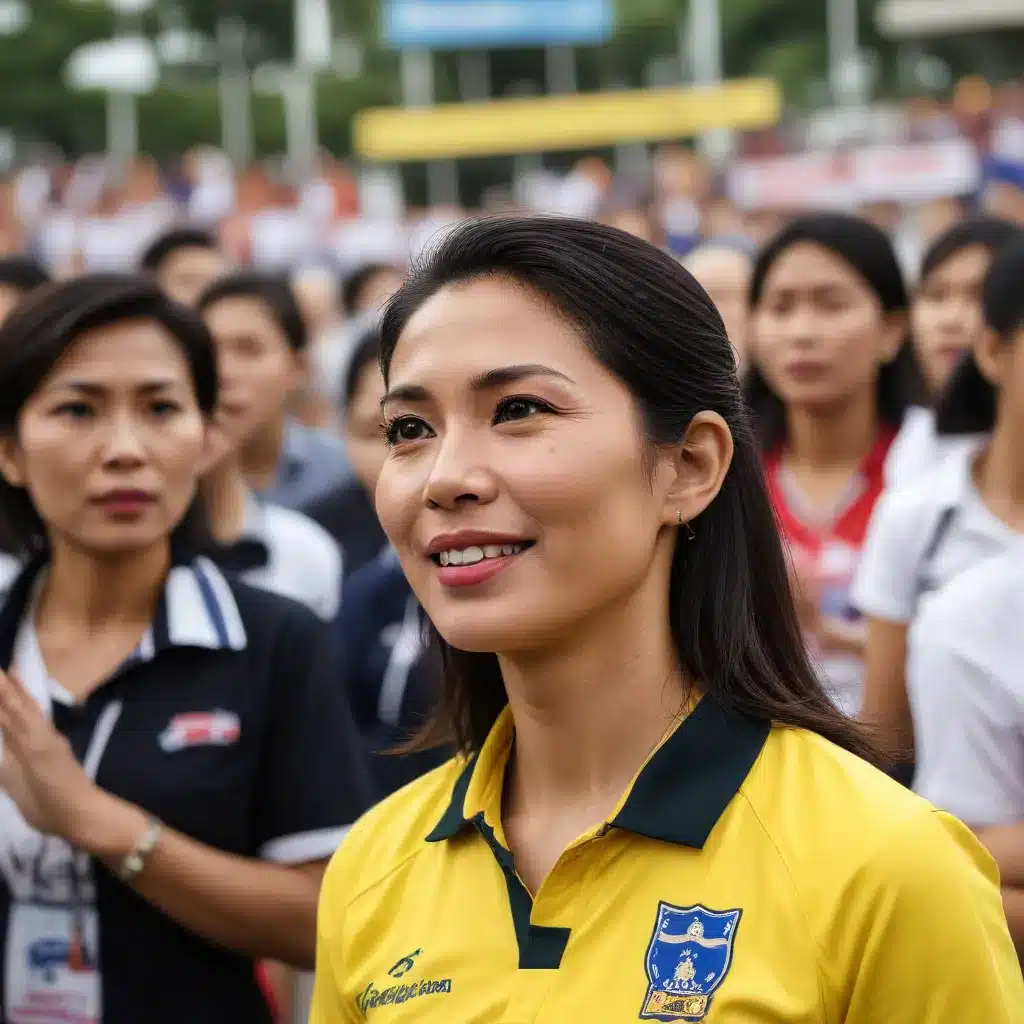
Representation of Women in Thai Local Politics
Thailand has long been hailed as a regional leader in women’s political participation, with women holding prominent national-level positions such as prime minister and parliament speaker. However, the landscape at the local level paints a very different picture. Despite making up over 50% of the Thai population, women remain significantly underrepresented in local government and leadership roles.
Barriers to Women’s Political Participation
Cultural Norms and Gender Stereotypes
Traditional gender norms and stereotypes continue to pose significant barriers for Thai women seeking political office. The prevailing view of politics as a male-dominated sphere, coupled with expectations for women to prioritize domestic and family responsibilities, discourages many from even considering a career in public service.
Lack of Support from Political Parties
Political parties in Thailand have been slow to prioritize the inclusion of women in their candidate slates and leadership structures. Without active recruitment and mentorship initiatives, aspiring female politicians often lack the backing and resources needed to mount successful campaigns.
Challenges in Fundraising and Campaigning
Running for local office in Thailand can be a financially and logistically demanding endeavor, with significant hurdles in securing campaign funding and navigating the complexities of local political landscapes. These challenges disproportionately impact women, who may have fewer connections and less access to resources compared to their male counterparts.
Strategies for Increasing Women’s Representation
Quota Systems and Legal Reforms
Some experts argue that the implementation of gender quotas, either through constitutional or legislative means, could be a crucial step in boosting women’s political participation at the local level. Such measures have proven effective in other countries, helping to create a more level playing field and challenge the status quo.
Training and Mentorship Programs
Initiatives that provide aspiring female politicians with targeted training, mentorship, and support can play a vital role in building their skills, confidence, and networks. By equipping women with the necessary tools and resources, these programs can help them overcome barriers and mount successful campaigns.
Advocating for Gender-Inclusive Policies
Grassroots organizations and civil society groups have an important role to play in advocating for policy changes that prioritize gender equality and inclusion in local government. This may involve pushing for reforms to campaign finance regulations, strengthening anti-discrimination laws, and ensuring that decision-making processes are more inclusive and representative.
Lessons from Brazilian Football
Gender Inequality in Brazilian Football
Underrepresentation of Women in Leadership Roles
The world of Brazilian football, much like Thai local politics, has long been dominated by men. From club boardrooms to national team management, women have historically been sidelined from positions of power and influence. This underrepresentation has had a ripple effect, hindering the growth and development of the women’s game in Brazil.
Challenges Faced by Female Football Players
Female footballers in Brazil have often faced significant challenges, ranging from inadequate training facilities and equipment to limited media coverage and sponsorship opportunities. The lack of investment and support for the women’s game has made it difficult for talented players to fully realize their potential and achieve the same level of recognition and success as their male counterparts.
Efforts to Promote Gender Equality
Grassroots Initiatives and Community Engagement
In recent years, there have been encouraging signs of progress, with grassroots organizations and community-based programs working to challenge gender norms and create more inclusive pathways for women in Brazilian football. These initiatives have focused on everything from youth development to advocating for policy changes at the institutional level.
Policy Changes and Institutional Reforms
At the institutional level, the Brazilian Football Confederation (CBF) has taken steps to address gender disparities, such as increasing funding for the women’s national team and launching initiatives to promote the participation of women in coaching and administrative roles. While more work remains to be done, these efforts represent a recognition of the need for systemic change.
Comparing Thai Politics and Brazilian Football
Similarities in Gender Disparities
The challenges faced by women in Thai local politics and Brazilian football share a number of striking similarities. Both domains have been historically dominated by men, with deeply entrenched patriarchal structures and cultural biases that have effectively excluded or marginalized female participation and leadership.
Potential for Cross-Learning
Given the parallels in the barriers encountered by women in these two spheres, there may be valuable opportunities for cross-learning and the sharing of best practices. Successful strategies and initiatives implemented in one context could potentially be adapted and replicated in the other, fostering a more collaborative and mutually reinforcing approach to promoting gender equality.
Implications for the Future
Empowering Women in Leadership
Addressing the underrepresentation of women in Thai local politics and Brazilian football will require a multifaceted approach that tackles both the systemic and cultural barriers at play. By investing in women’s political and sports development, mentoring programs, and advocacy efforts, policymakers and stakeholders can help create a more level playing field and foster a culture of inclusion and diversity.
Building a More Equitable Future
Ultimately, the pursuit of gender equality in these domains is not just about fairness and representation; it is also about unlocking the full potential of these societies and institutions. By empowering women to assume leadership roles and participate actively in decision-making processes, Thailand and Brazil can tap into a wealth of diverse perspectives, skills, and ideas that can drive more holistic and sustainable progress.

